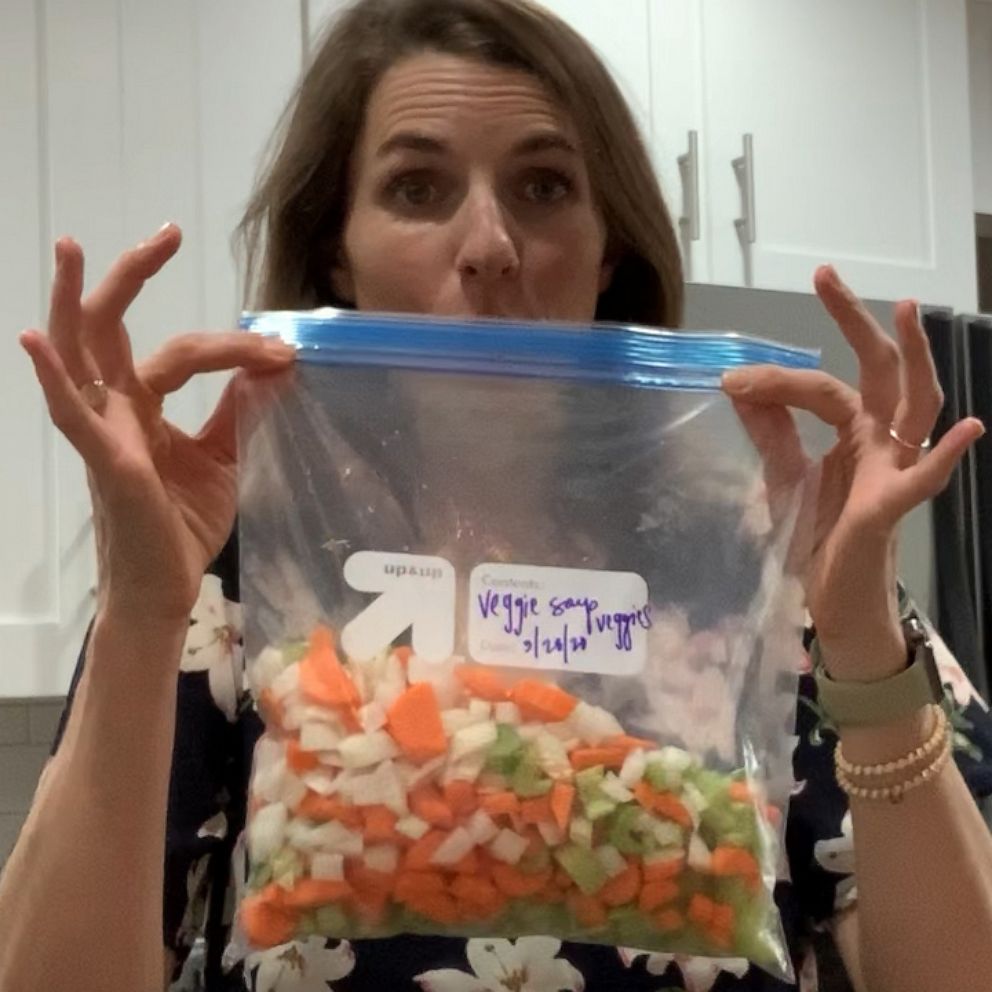4 tips to extend the life of groceries during coronavirus pandemic
With many stocking up on food, it's easy to get confused by the dates on labels.
With many people stocking up on food and staying at home due to the coronavirus pandemic, it’s easy to get confused by the dates listed on the label of certain food products with terms like “sell by” or “use by.”
But Amy Keating, a registered dietitian with Consumer Reports, is urging consumers not be discouraged by those dates.
“All the different dates are all related to the food’s quality and not safety,” Keating told "Good Morning America."
Now she’s encouraging people to stock up and maximize the freshness and quality of items by storing them in the freezer.
Here are four of her tips to extend the life of your groceries:
1. Keep an eye on eggs past expiration date
Keating says eggs can last in the fridge for 3-5 weeks after they are purchased.
“The date on the egg carton is not a live and die date,” she said. “You don’t need to throw the eggs out."
She says they can even be kept in the freezer for about a year if they won’t be consumed during that time frame. To store, simply crack the eggs and beat them, then freeze them in an air tight container.
2. Blanch veggies
Leafy greens like kale or spinach can be kept frozen in the freezer by first dropping the leaves in boiling water for a short period then transferring them to ice water to stop the cooking. Keating says blanching them this way deactivates the enzymes.
After they’re in the ice water, they can be kept in a container in the freezer for up to 10 months.
3. Freeze bread
If you’re stocking up on pre-sliced bread, you can save the loaves in the freezer until you’re ready to eat. Keating says bread can be stored for up to three months in the freezer.
“You want to make sure that it’s pre-sliced so that you’re not thawing and refreezing it,” she said. “You’re taking out exactly what you need.”
For more information on other foods and how to extend the life of groceries, a good tool is the USDA FoodKeeper App, which offers specific storage timelines for your fridge, freezer and pantry for various products.
4. Wash berries as you eat them
Keating recommends removing the stems from berries when you get home from the market and placing the berries in a paper towel-lined container. This will help prevent the berries from getting moldy, she says.
"Just prior to eating them, wash them," Keating said. "Don't wash the whole batch and store them in the refrigerator. They're only going to spoil that much quicker."





